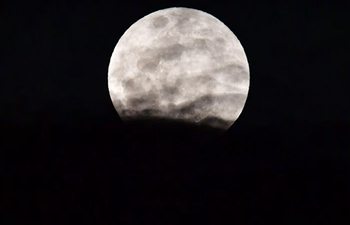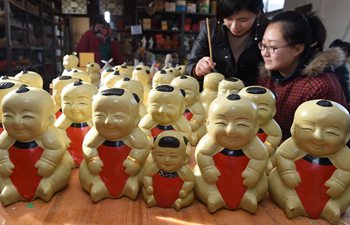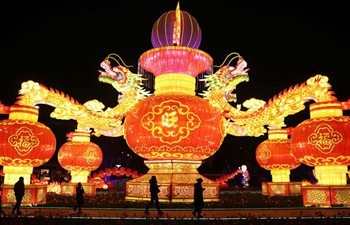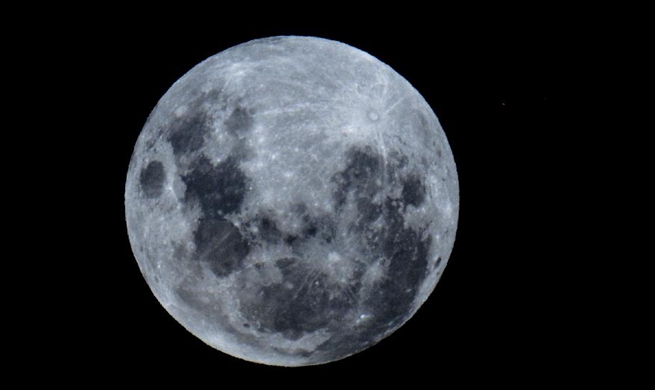BEIJING, Jan. 31 (Xinhua) -- Stargazers across China looked up at the moon to witness the rare sight of a "super blue red Moon" Wednesday night.
In Beijing, the total lunar eclipse began at 8:51 p.m. when the moon entered the shadow of Earth and appeared to be wrapped in coppery blue.
As the moon passed into Earth's shadow, it exhibited a reddish tinge as the sunlight was refracted while shining through the Earth's atmosphere. The red moon graced the sky in most parts of China for over an hour, according to the Beijing Planetarium.
According to Zhang Yang, an expert at the Purple Mountain Observatory in Nanjing, capital of east China's Jiangsu Province, the second full moon in a month is a blue moon. On Wednesday, the moon also happened to be rather close and bright because its orbit was near its closest point to Earth, thus called a supermoon.
"Supermoons occur rather often, but we rarely see it sync up with a lunar eclipse, or blood moon," Zhang said.
On Wednesday night, the cosmic sight was seen in most parts of China where the weather was clear. The western parts of Tibet Autonomous Region and Xinjiang Uygur Autonomous Region may have missed the beginning of the lunar eclipse, according to Zhang.
Popular video sites provided live broadcasts of the "super blue red moon." People shared their "moon moments" on social media, and pictures of the lunar eclipse went viral on the Internet.
Over 1,000 people gathered at the Beijing Planetarium to use the equipments to watch the moon. Many parents brought their children for a lesson in science.
Wei Xiaofan, 37, is an ardent fan of astronomy. "I wouldn't miss each lunar eclipse, because each time the moon is in a different charm," he said.
"The sky is the most beautiful and most profound field where there is an immense amount to be learnt," said Hai Jintao, an expert in material science, at the planetarium.
Fans and astronomers also gathered at Lijiang observatory in Lijiang city in southwest China's Yunnan Province. "I'm here to observe the optical telescope here, because it is one of Asia's largest. It is a good place to take pictures of the moon tonight," said Masaoki Hagino, an expert in astronomy from Japan.
The Lijiang observatory is located at Gaomei village in Yulong Naxi Autonomous County.
Chinese folklore once interpreted the lunar eclipse as the moon being eaten up by a heavenly dog, and people would play drums and burn fireworks to drive the heavenly dog away.

















